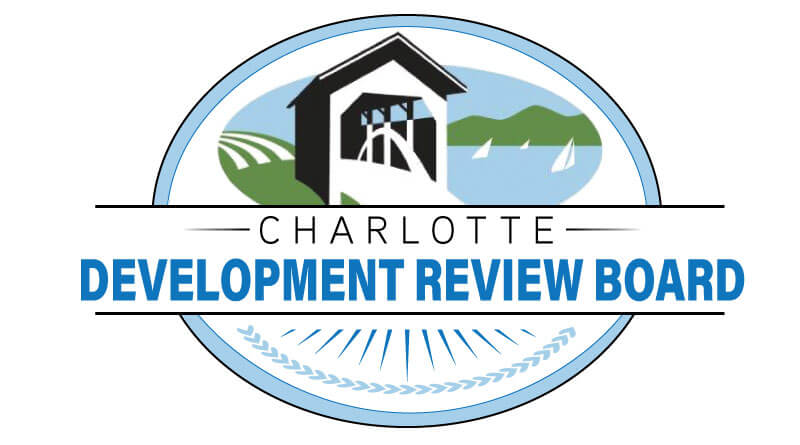Development review board hopes reconsideration ruckus proves instructive if similar situations arise
A deliberation is not a meeting.
And because a deliberation is not a meeting, open meeting restrictions do not apply.
 This was the legal opinion David Rugh, one of the town’s attorneys, delivered again and again at a special meeting of the Charlotte Development Review Board on Wednesday, March 2.
This was the legal opinion David Rugh, one of the town’s attorneys, delivered again and again at a special meeting of the Charlotte Development Review Board on Wednesday, March 2.
This meeting was one of several held in recent weeks to address whether the board violated open meetings laws when it discussed whether to reopen for reconsideration preliminary approvals of applications for a couple of proposed projects, but particularly an application by Patricia O’Donnell and Jim Donovan for a nine-lot subdivision on 124 acres at 125 Lake Road.
Ultimately, these discussions have turned out to be moot except as examinations of how the new board’s process should work because O’Donnell and Donovan withdrew their reconsideration request.
The issue may have become even more academic when an online real-estate company listed the Lake Road property for sale at $1.17 million. However, this ad appeared to have been taken down a day or so later.
Town planner Larry Lewack said he didn’t know whether or not O’Donnell and Donovan planned to sell the property, but that it isn’t unusual for people involved in property negotiations to put out exploratory feelers to see what a property is worth.
“It’s fair to assume that they’re mulling over their options,” Lewack said. “Our working assumption is that they’re going forward.”
When asked whether the property was or was not for sale, O’Donnell said, “We are simply exploring our options.”
On social media, Sharon Mount, who with her husband, Barry Finette, owns property abutting the planned development, posted a request for fundraising to protect this land “which meets the Charlotte Town Plan definition of ‘land of high public value.’”
At the March 2 meeting, Rugh said the Development Review Board’s previous discussions about whether to go into reconsideration was a deliberation, not a meeting. Deliberations of town boards are not meetings, he said, and therefore don’t have to be warned, held in public, can happen by email, and board members don’t even have to be together in one place.
“Discussions among board members to schedule or set the agenda, distribution of meeting materials, when to schedule meetings, those are defined by statute as not meetings,” Rugh said, and since they are not meetings, they are not subject to open meeting laws.
Also not covered by open meeting law is a sketch plan review, which is an informal meeting to go over the design of an applicant’s proposal. This is not a hearing and does not result in a formal decision, but just a recommendation or an advice letter, he said.
The sketch plan stage is followed by a preliminary review. The preliminary plan review stage is a formal hearing where the board sits in “a quasi-judicial capacity,” Rugh said. Applicants and neighbors are supposed to be notified of such a hearing and have an opportunity to attend to present evidence or give testimony.
“Charlotte’s development review board has established a practice of deliberating in public,” he said. “Many of the recent issues that have been raised result from the board deliberating in public. That is a good thing from a transparency perspective, but it doesn’t have to happen.”
The development review board is one of the town boards with the authority and necessity upon occasion to meet as a quasi-judicial body, and when it does, it is operating similarly to a judge in a trial. Like a judge’s right to retire away from public view to consider a case, the development review board can meet in closed session to deliberate.
Finette objected to the way the board handled the reconsideration process because he had made “a formal request” to speak during the board discussion and wasn’t allowed to speak.
“Your opportunity comes if the development review board decides to reopen the hearing,” Rugh said.
“It’s not an open meeting law violation because it’s not a meeting,” he repeated.
Chair Charlie Russell said the board felt it had enough evidence to decide whether to open the application for reconsideration. “We believe we didn’t need to take new testimony. We had a decision in front of us with findings and conclusions that we evaluated.”
Even if the board was not required to let people speak, board member Christina Asquith questioned why they weren’t allowed to speak. At subsequent meetings the development review board has spent a lot of time listening to people sharing their frustrations about not being given a chance to speak.
“It’s taken us so much more time and everybody’s feeling badly about it. And I also feel like we weren’t able to hear full information,” Asquith said.
Chair Charlie Russell said, “I don’t think we’re wasting a lot of time. I think we’re all learning a lot about a very confusing issue. I think when the next time this comes up, if it’s ever like this, we’re going to be better prepared.”
If you enjoy The Charlotte News, please consider making a donation. Your gift will help us produce more stories like this. The majority of our budget comes from charitable contributions. Your gift helps sustain The Charlotte News, keeping it a free service for everyone in town. Thank you.
Bill Regan, Chair, Board of Directors



